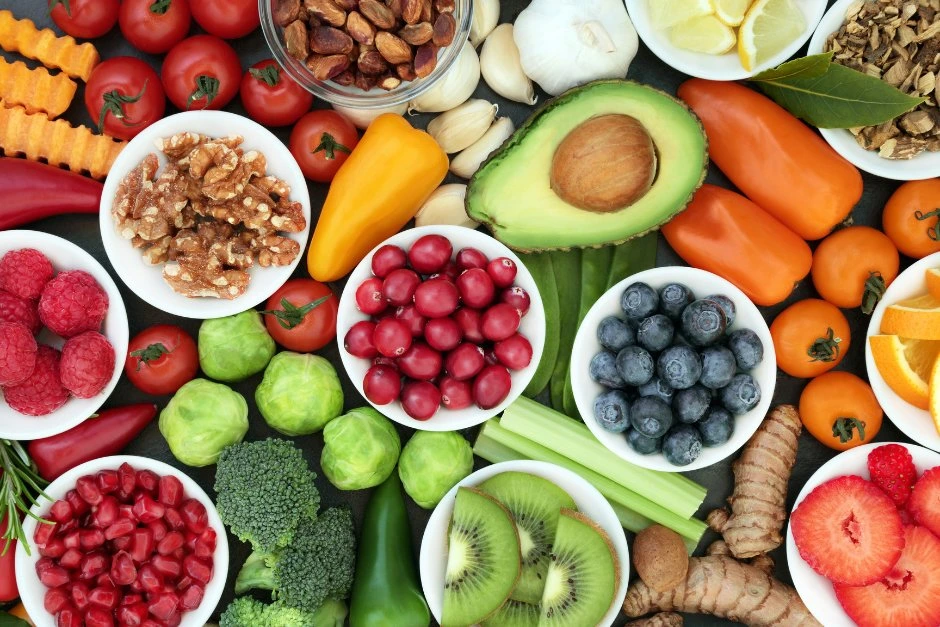
Nutrition is an essential pillar of women’s health. On International Women’s Day, held on March 8, 2025, we highlighted the powerful role of diet and lifestyle in managing the common health concerns women face across different life stages. From hormonal imbalances and fertility challenges to bone health and chronic conditions, the right nutritional strategies can make a powerful difference.
Do you know a woman living with endometriosis? Chances are you do and may not even know it. Endometriosis affects approximately 1 in 10 women of reproductive age and is a leading cause of pelvic pain, fatigue, and infertility.
More and more evidence is emerging that highlights the impact of therapeutic dietary strategies for endometriosis. While it is not a cure, nutrition plays an important role in symptom management and overall quality of life.
It is common for women with endometriosis to also experience gastrointestinal symptoms, often overlapping with Irritable Bowel Syndrome (IBS). In such cases, these women may benefit from trialling a low FODMAP diet under the guidance of qualified dietitian services, as this approach can reduce bloating, abdominal pain, and other digestive symptoms.
Polycystic Ovary Syndrome (PCOS) is a hormonal disorder affecting up to 1 in 10 women of reproductive age. It is closely linked with insulin resistance, weight gain, acne, irregular periods, and fertility challenges.
Nutrition plays a crucial role in managing insulin levels, which are often disrupted in PCOS. A well-structured eating plan can improve hormonal balance, support ovulation, and reduce the risk of long-term complications such as Type 2 diabetes and heart disease.
Minimising sugary snacks and processed foods is also critical for effective PCOS management. For individualised support, speak with a qualified professional offering women’s nutrition programs.
Fertility is deeply influenced by lifestyle and dietary choices. A balanced, nutrient-rich diet can optimise hormone production, improve egg quality, and prepare the body for conception and pregnancy.
Consuming a variety of whole grains, fruits, vegetables, lean proteins, and healthy fats ensures a wide range of fertility-boosting nutrients. If you’re planning a family, consulting with a specialist in fertility-focused nutrition programs can help tailor your diet for preconception care.
Menstruation increases the risk of iron deficiency due to monthly blood loss. This is one of the most common nutritional deficiencies in women and may lead to symptoms such as fatigue, dizziness, poor concentration, and low immunity.
To enhance absorption, pair iron-rich foods with vitamin C sources such as oranges, capsicum, kiwi, and strawberries. In some cases, especially with heavy menstrual bleeding, iron supplements may be necessary. Speak with your healthcare provider for appropriate testing and treatment options.
Osteoporosis is more common in women, particularly after menopause, due to decreased estrogen levels. Ensuring strong bones through diet and lifestyle is key to preventing fractures and maintaining mobility later in life.
Weight-bearing exercise and limiting excessive caffeine and alcohol also help maintain bone density. If you’re at risk of bone loss, a personalised plan from a bone health-focused dietitian service can be very beneficial.
Each woman’s body is unique, and nutrition needs can vary greatly based on age, health history, and lifestyle. Whether you’re navigating endometriosis, PCOS, fertility planning, or managing iron levels and bone density, working with qualified dietitian services ensures a personalised, evidence-based approach to your health goals.
At Holistic ME, we are proud to support women through every stage of life. From one-on-one nutrition programs and dietetic consultations to behavioural therapy and daily living assistance, our team is here to help you feel your best.This International Women’s Day, empower yourself and the women around you with the knowledge, care, and nourishment needed to thrive.